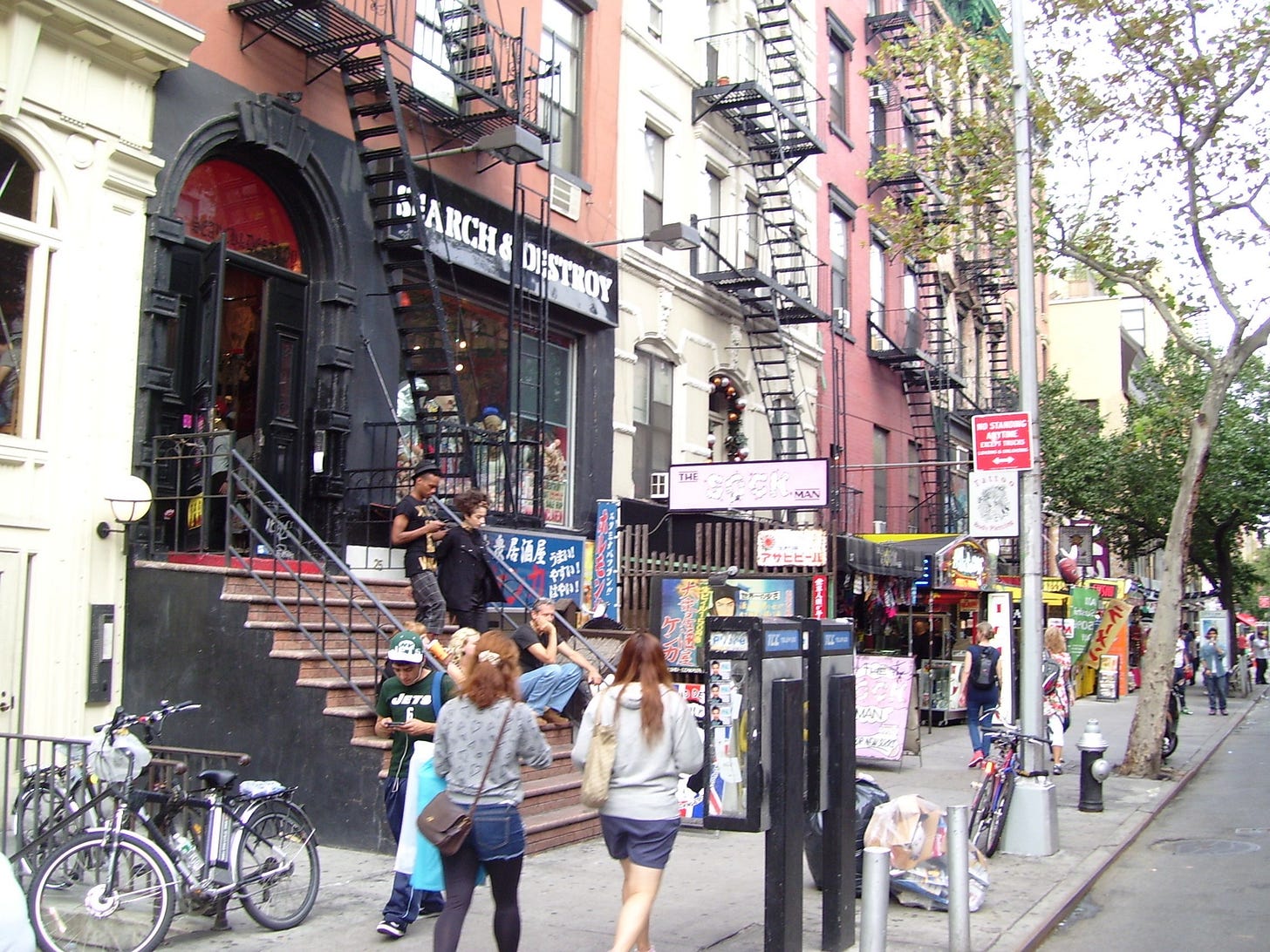East Village
Until the mid-20th century our European artist’s status had been rising steadily, especially since the Renaissance. We modern era Euros would mold and ordain our artistic hopefuls in the way of the priests, only of a secular variety — one of the many signs and factors of the greater processes integrating Europe into a unique organism of singularly similar peoples.
In this organism, the rising role of the artist, from a court artisan to a sovereign spokesman for the truth, even the Truth, can be construed as a subliminal takeover of the terrain being increasingly abandoned by our core historical religion.
And so we were coaching our budding diviners through the naive but passionate life stories of the Michelangelos, the van Goghs, the Lautréamonts. Through the fictional trials of the young Werthers, the Frédéric Moreaus, the Tonio Krogers. We were feeding the recognition craving artistic youths the promise of an earthly success and, connaturally, an otherworldly perch. We were sculpturing the malleable young wills with the conviction that an artist wouldn’t get anywhere worth chasing sans leap of faith. Without tossing himself into the unknown with the eyes preferably shut. His misdeeds, misdemeanors, mis-you-name-its were to be barely registered, when weighed against the moving the artistic frontier an inch, even a quarter of an inch, forward. In turn, promising an unqualified redemption.
Then after the Hitler war — an interesting time stamp — a slow yet profound shift began taking place regarding an artist as a European heros. And then, abruptly, as if the checkpoint had been smashed, a mysterious spark ran up the collective spine of artistic America, indeed a strange vibration. From the cities, the suburbs, the towns, the countryside, from Florida to Texas to California to Oregon, Alaska, Michigan, Maine, Maryland, Georgia, and the rest of the states family, the artistically inclined youth began massively packing up and hitting the road for the tiny spot on the map, Manhattan’s East Village.
Painters, dancers, fashion designers, filmmakers, actors, singers, musicians, poets, journalists, all flew, drove, caught rides to get themselves tucked in in this formerly Jewish, still Ukrainian, Belarusian, Polish, on the outskirts bloatingly Mestizo, hamlet in the City.

Many of them were low on coin, naturally, so they’d shop off the sidewalks and thrift shops, grabbing 100% wool or cotton garbs from back 1940s and 50s, which the locals were pulling out of their cardboard suitcases and closets, happy for the business, and that's how the ankle-length overcoats, the padded jacket shoulders, and similar garment retro-quotes had fertilized the 1980s worldwide fashion mainstream.



